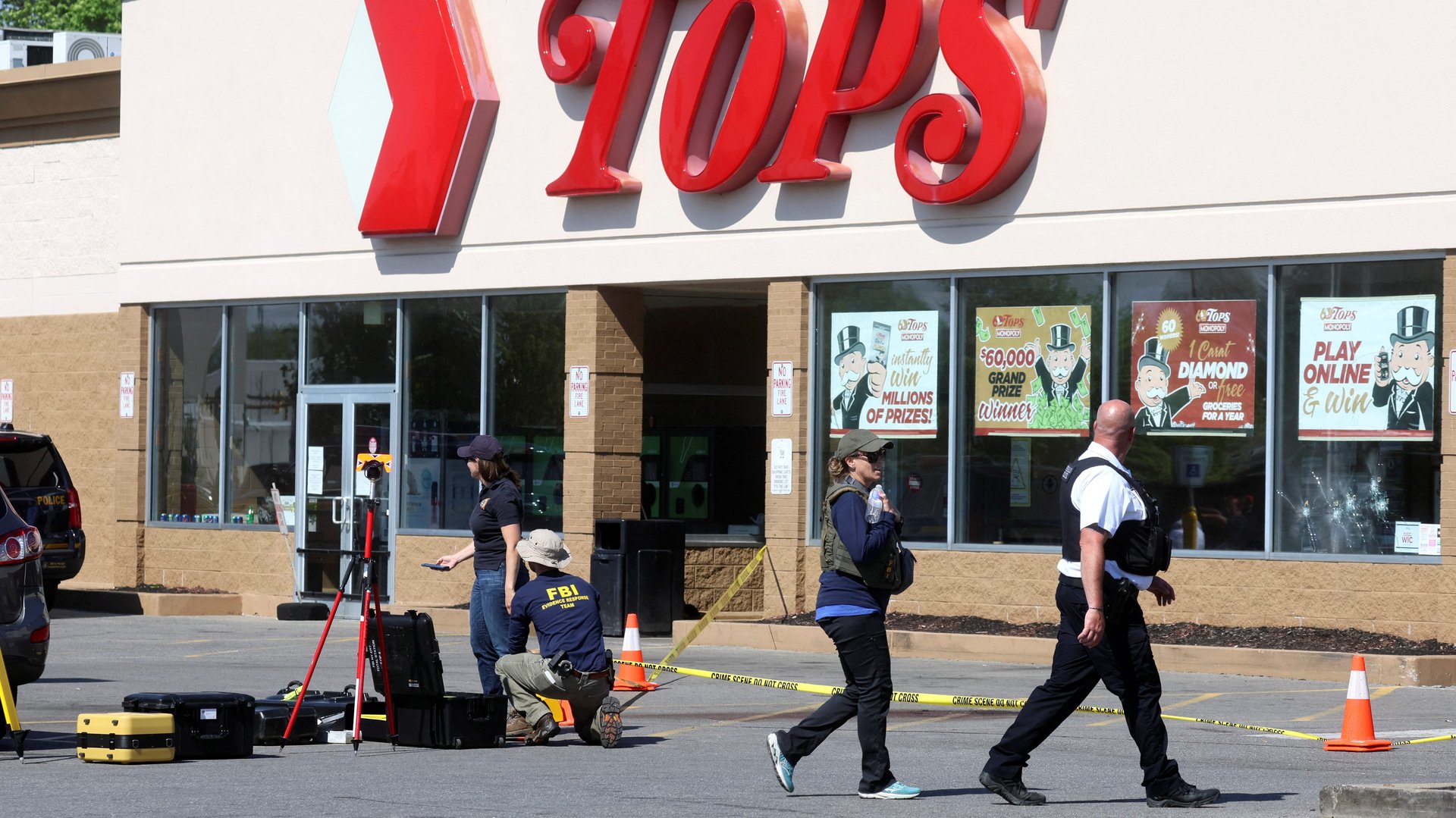The mass shooting site in Buffalo was more than just a grocery store
The Tops Friendly Market in Buffalo, New York, where 10 people were murdered on Saturday (May 14), will remain closed until further notice. An 18-year-old white man has been accused of killing 10 people and injuring three others at the grocery store according to law enforcement officials, who described the attack as racially motivated. Most of the people who were shot were Black.


The Tops Friendly Market in Buffalo, New York, where 10 people were murdered on Saturday (May 14), will remain closed until further notice. An 18-year-old white man has been accused of killing 10 people and injuring three others at the grocery store according to law enforcement officials, who described the attack as racially motivated. Most of the people who were shot were Black.
In a city shaped by decades of segregation (pdf), this grocery store is more than a just place to stock up on milk, cereal, chicken, and rice, it a significant landmark for the Black community.
The Tops Friendly Market on Jefferson Avenue is where friends and relatives catch up. It is a store, accessible by bus service, where shoppers cash in their coins, refill a prescription from the pharmacy—and even pay their utility bills there. It’s a place where community groups pick up refreshments for local meetings, said Takiyah Nur Amin, a former Buffalo resident, via email. Amin, a founder of a consulting firm, was born and raised in Buffalo, and still has family there. She took to Twitter to share her thoughts with another poster who tweeted about what the market meant to the community.
The grocery store, located in the second largest city in New York, operates in a long-standing Black community that is primarily working class and poor, said Amin. The store is on the east side of Main Street, where 85% of the people in the city of Buffalo who identify as Black live. In 2019, the area’s poverty rate hovered at around 30%, and the median household income was $39,677, according to Census Reporter, a site that tracks data from the US Census. “The grocery store is a critical resource because there haven’t always been accessible services on that side of town,” she wrote.
The Jefferson Avenue location opened in 2003 after residents had been calling for a full-service grocery store in the neighborhood, once considered a food desert, for more than a decade The Buffalo News reported.
The important role of local grocers
Small to medium sized grocers are able to customize their products and meet the community in a way that large chains can’t, said Kennedy Smith, a senior researcher at the Institute for Local Reliance, a think tank that advocates for small business. Tops has 150 stores and five franchise stores, and is located in New York, Pennsylvania, and Vermont.
The local grocery store also plays the role of communicating public nutrition to the community, provides jobs, and makes the neighborhood more stable. “They play an extremely important role in daily life,” Smith said.
“What hurts me is that this community that has strived to have the resources it does have—we didn’t get that store until around 2003—was targeted,” Amin wrote. “ People who work and scrape and save for everything they have, were going about their business and met with violence. To take from folks who have so little is especially awful.”
Buffalo, New York is shaped by racial segregation
Buffalo, New York, a Rust Belt city that boomed during the manufacturing age, is a highly segregated (pdf) metro area. White people are overrepresented in the suburbs, and people of color are overrepresented within the city of Buffalo due to a history of zoning laws, redlining, and other forms of housing discrimination that kept minorities from moving into white neighborhoods.
In 2019, 35% of Black residents in the Buffalo metro area lived in predominantly Black neighborhoods, whereas national 17% of Black American live in majority Black census tracts, according to 24/7 Wall Street, a financial news and commentary site. Where you live plays a big role in your access to good jobs, quality schools, and healthy food.
The governor of New York, Kathy Hochul, called on the store to reopen. Aware of the role it plays in the neighborhood, Tops said it is providing free bus services to and from nearby Tops locations. In Buffalo, people of color are the primary users of public transportation (pdf). Other organizations have stepped up to assist, including Buffalo Community Fridge, which has begun handing out food to those in need in the Jefferson Avenue community and is accepting food donations.